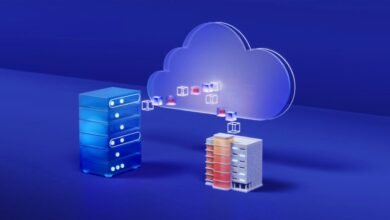The Impact of Artificial Intelligence on Jobs and the Future of Work in 2023

Artificial Intelligence on Jobs
Artificial Intelligence (AI) is transforming industries, from healthcare to transportation, and education to finance. AI is changing the way we live, work, and communicate with each other. While AI has the potential to revolutionize our lives, there are concerns about its impact on jobs and the future of work. In this article, we will explore the Impact of Artificial Intelligence on Jobsand the future of work.
The Rise of Artificial Intelligence
AI refers to machines that can perform tasks that typically require human intelligence, such as understanding natural language, recognizing images, and making decisions. AI is transforming many industries, and it has the potential to disrupt many more. AI has the ability to analyze vast amounts of data quickly and accurately, making it useful for tasks such as predicting weather patterns, detecting fraud, and diagnosing diseases.
Impact on Jobs
There are concerns that AI will lead to job displacement, as machines become more capable of performing tasks that were previously done by humans. In fact, a 2019 report by the World Economic Forum estimated that AI and automation could displace 75 million jobs globally by 2022. However, the same report also predicted that AI and automation could create 133 million new jobs globally by 2022, as new industries emerge and existing ones evolve.
AI has already impacted many industries, from manufacturing to finance. In manufacturing, robots and automation have replaced workers in tasks such as welding and assembly. In finance, AI is being used to automate tasks such as risk assessment and fraud detection. However, AI is also creating new jobs in these industries, such as data analysts and AI engineers.
The Future of Work
The impact of AI on jobs will depend on how quickly and effectively workers can adapt to new technologies and skills. Workers will need to be trained in new skills such as data analysis, machine learning, and programming to stay competitive in the job market. Education and training programs will need to be developed to help workers acquire these skills.
The rise of AI may also lead to new models of work, such as remote work and flexible schedules. AI has the potential to automate routine tasks, allowing workers to focus on more creative and strategic tasks. This could lead to a more fulfilling and rewarding work experience for many workers.\
Read More:Top 5 Underrated Artificial intelligence Tools to Try on Inworld.ai & More
Conclusion:
AI is transforming industries and has the potential to create new jobs and improve productivity. However, it also has the potential to displace jobs and disrupt industries. The impact of AI on jobs will depend on how quickly workers can adapt to new technologies and skills. Education and training programs will be essential in helping workers acquire the skills needed to thrive in a world where AI is increasingly prevalent. The future of work will be shaped by the ongoing developments in AI, and it is up to us to ensure that these developments benefit everyone.
FAQs:
- What is AI, and how is it changing industries?: AI refers to machines that can perform tasks that typically require human intelligence, such as understanding natural language, recognizing images, and making decisions. AI is transforming many industries by automating tasks, analyzing vast amounts of data quickly and accurately, and creating new products and services.
- Will AI lead to job displacement? :There are concerns that AI will lead to job displacement as machines become more capable of performing tasks that were previously done by humans. However, AI is also creating new jobs in many industries, such as data analysts and AI engineers.
- How many jobs will AI displace?: A 2019 report by the World Economic Forum estimated that AI and automation could displace 75 million jobs globally by 2022. However, the same report also predicted that AI and automation could create 133 million new jobs globally by 2022.
- What skills will be required in a world where AI is prevalent?: Workers will need to be trained in new skills such as data analysis, machine learning, and programming to stay competitive in the job market. Education and training programs will need to be developed to help workers acquire these skills.
- What impact will AI have on the future of work?: The rise of AI may lead to new models of work, such as remote work and flexible schedules. AI has the potential to automate routine tasks, allowing workers to focus on more creative and strategic tasks. This could lead to a more fulfilling and rewarding work experience for many workers.
- How can we ensure that the impact of AI benefits everyone? :It is up to us to ensure that the ongoing developments in AI benefit everyone. Education and training programs will be essential in helping workers acquire the skills needed to thrive in a world where AI is increasingly prevalent. We also need to ensure that AI is developed and used in a way that is ethical, transparent, and fair.











